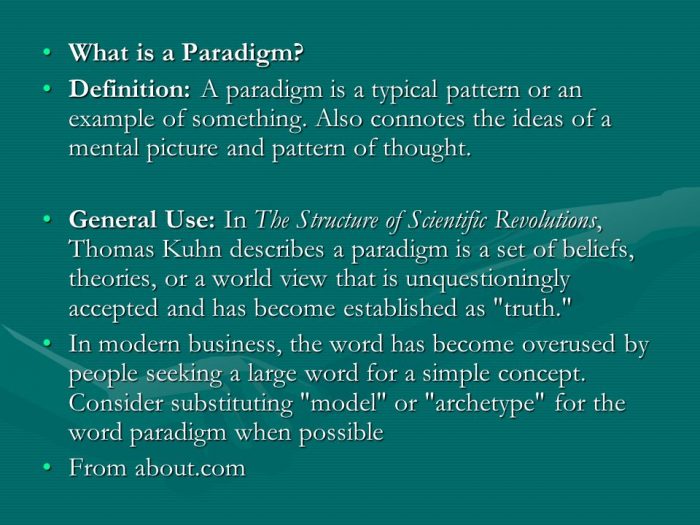Dit was Peter R. de Vries, één van de bekendste misdaadverslaggevers van Nederland
15 jul. 2021
Page Description
Discover a robust paradigm that offers effective solutions and valuable insights, shaping a strong framework for understanding complex issues
Paradigm
a model of something, or a very clear and typical example of something:
Some of these educators are hoping to produce a change in the current cultural paradigm.
Synonym model (COPY) Compare prototy
Cambridge Dictionary
1 Obama Foundation Town Hall Europe
2 Ending Mass Incarceration: Bryan Stevenson
A paradigm refers to a framework or set of assumptions, concepts, values, and practices that underlie a particular theory, discipline, or worldview. The key points of a paradigm include:
Assumptions: Paradigms are built on a set of assumptions or beliefs about the world, which shape how we understand and interact with it.
Concepts: Paradigms use certain concepts or ideas to describe and explain phenomena within their domain of study.
Values: Paradigms are often based on a set of values or principles that guide research or practice within the field.
Practices: Paradigms also include specific practices or methods for conducting research or solving problems within the field.
Scope: Paradigms have a scope or range of application, and may be more or less broad in their approach to understanding the world.
Evolution: Paradigms may evolve over time as new information, perspectives, or technologies emerge, leading to changes in the underlying assumptions, concepts, values, and practices of the field.
Understanding the key points of a paradigm can help us better appreciate and critique the assumptions and values that underlie different ways of thinking and acting in the world.

Definition: A paradigm is a typical pattern or an example of something. Also connotes the ideas of a mental picture and pattern of thought. General Use: In The Structure of Scientific Revolutions, Thomas Kuhn describes a paradigm is a set of beliefs, theories, or a world view that is unquestioningly accepted and has become established as truth. In modern business, the word has become overused by people seeking a large word for a simple concept. Consider substituting model or archetype for the word paradigm when possible. From about.com.
A paradigm is a framework or set of assumptions and concepts that form a particular way of understanding and interpreting a phenomenon or a set of phenomena. Some key points of a paradigm include:
It provides a set of shared assumptions, concepts, and values that define a particular field of study or approach to a problem.
It guides the way researchers or practitioners approach a problem, by suggesting which questions are worth asking, what data to collect, and how to interpret that data.
It helps to define what counts as evidence within a particular field or approach, and what methods are appropriate for gathering and analyzing that evidence.
It can shape the way people think about a particular phenomenon or set of phenomena, influencing the language, concepts, and theories that are used to describe them.
A paradigm can also be seen as a lens through which people view the world, shaping their perception and interpretation of events and experiences.
Paradigms can change over time as new evidence is gathered, new questions are asked, and new approaches are developed. A paradigm shift occurs when the dominant way of thinking within a field is replaced by a new approach or perspective.
3 Mejores Bromas – Dentista Loco
17 apr. 2013